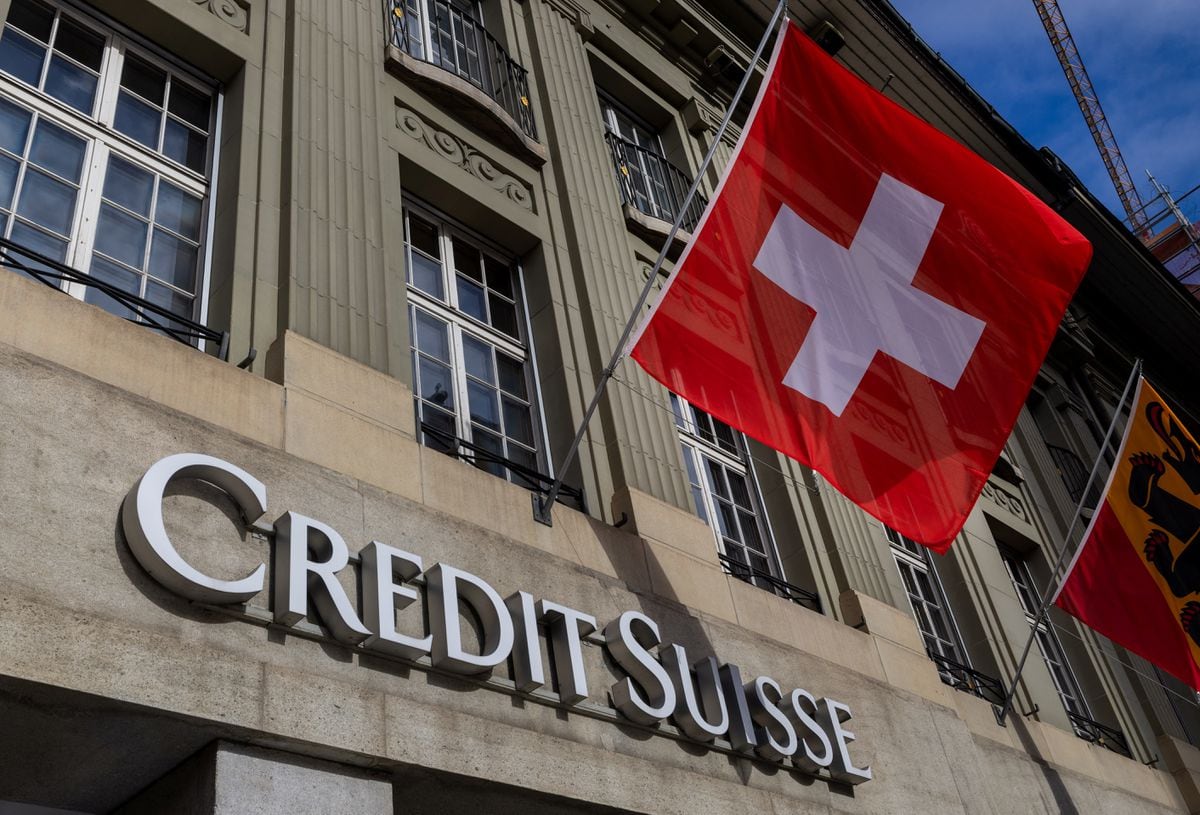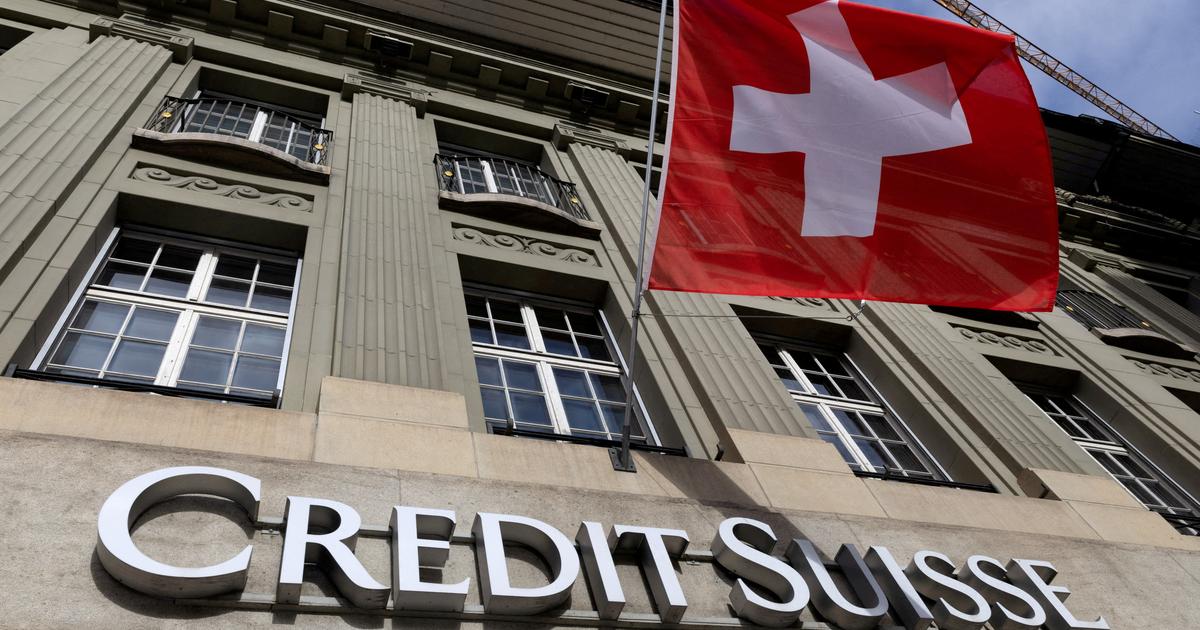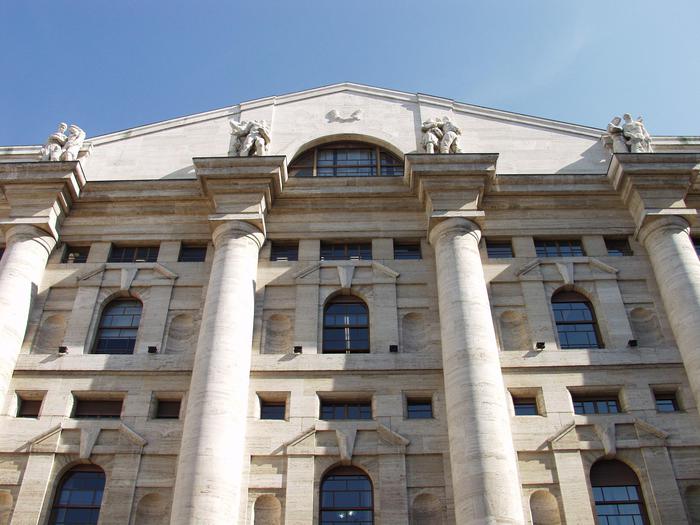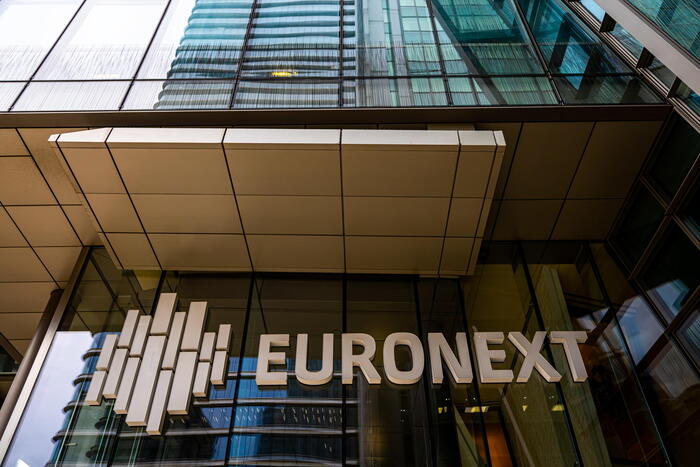The Swiss bank UBS has reached an agreement to acquire Credit Suisse in exchange for more than 2,000 million dollars in own shares (about 1,900 million euros), in an operation that will merge the two largest banks in the country.
The transaction, brought forward this Sunday afternoon by the
Financial Times
, has taken place during an agonizing weekend, full of emergency meetings, in an attempt, finally successful, to close the sale before the market opens this Monday. , when a new collapse in the Credit Suisse stock market was foreseeable with the potential to cause losses to all banks.
After a tug-of-war over the price - UBS's first offer, of 1,000 million, was rejected as too low - the pressure exerted by the Swiss authorities, and the benefits promised to the main Swiss bank to carry out the operation, have been enough for him to agree to buy what was considered his great rival, although the distance between the two had grown in recent times.
While UBS was valued this Friday at market close at 56,000 million, its competitor was around 8,000 million capitalization.
That means that UBS will pay almost a quarter of what it was worth on the Credit Suisse Stock Exchange just a couple of days ago.
The pact creates one of the largest banks in Europe, and serves to end the confidence crisis that was bleeding Credit Suisse dry.
The Zurich-based entity already saw deposit leaks in the last quarter of 2022.
Although the Swiss National Bank insisted this week that it was broadly meeting capital and liquidity requirements, customer fears that the bank's situation would worsen with their savings inside was fueling further money flight amid the tidal wave of reports. negative.
That has made Credit Suisse's continuation on its own untenable.
The brand has gone from being synonymous with reliability to becoming a source of suspicion, damaging the reputation of the once unimpeachable Swiss bank, and becoming a liability to the entire industry.
The deal is a relief for the markets, because on paper it avoids a disastrous session on Monday, but there are concerns about its consequences for competition.
Reducing the number of large banks in the country from two to one will allow UBS to lead the Swiss market with hardly any opposition, and voices are beginning to appear in the country warning that this can harm users, by being left at the mercy of a single large bank.
There is also concern among workers.
Credit Suisse had 16,700 employees in Switzerland at the end of 2022 and around 50,500 worldwide.
Overlaps with UBS will mean layoffs, so the Swiss Association of Bank Employees (Aseb) has called for the creation of a workforce to protect jobs.
UBS has been benefiting from the crisis of its rival for some time, from which a large part of its new clients came, and started out in a privileged negotiating position, because it is the one that takes risks by taking over Credit Suisse and carrying all its suitcase of problems, but At the same time, a lot was at stake in the operation to save his rival, as the Swiss journalist Yves Genier, author of Scandals chez Credit Suisse, explained to this newspaper.
"UBS benefits from the image of Switzerland, from its banking, and if Switzerland were to drop one of its two big banks, the other will suffer fatally in terms of reputation and image, and mistrust will set in."
In addition, the low price paid gives it a wide margin of maneuver to get a return on the acquisition if it is able to clean up the bank.
The operation puts a sad climax to a black week for the bank founded in 1856 by Alfred Escher to finance railway infrastructure that Switzerland lacked, including such emblematic projects as a Saint-Gothard tunnel under the Alps.
The entity, penalized in the last five years for the continuous changes in its management team, and involved in a string of scandals that skyrocketed its legal bill and forced it to pay numerous fines to regulators in the US, the EU and Switzerland, long ago that it was considered one of the weakest links in European banking, and that had been reflected in its listing on the Stock Market, with a drop of almost 90% in just five years.
In this fragile situation, with losses of 7,381 million in losses in 2022, and announcements of more red numbers for 2023, he was caught up in the confidence crisis unleashed last week in the US by the collapse of Silicon Valley Bank and Signature Bank in United States.
It was joined by two pieces of news that lit the fuse: on Tuesday, in its annual report, Credit Suisse recognized "relevant weaknesses" in its financial information control systems.
And on Wednesday, its main shareholder, the Saudi National Bank, owner of 9.8% of the titles, announced that it would not contribute more money, which reduced its image as the bank's lifeline in the event of a worsening of the crisis, and left Credit Suisse at the mercy of markets that showed no mercy.
The speed at which everything happened surprised even the Swiss politicians most attached to the evolution of the entity.
This is the case of the deputy and vice president of the Socialist Party Samuel Bendahan, as he himself explains to this newspaper.
“It is not new that Credit Suisse has problems.
It has been mired in a governance crisis for years.
Even so, it has surprised us, we were not sure that we were going to reach this point.
In my opinion, the international context has influenced, and all the precedents have caused investors to lose confidence quite quickly”.
confidence crisis
There was a little lapse in which everything seemed to settle.
On Wednesday night, the Swiss National Bank said publicly that it would make liquidity available to Credit Suisse "if necessary."
And just a few hours later, in the early hours of Wednesday to Thursday, the bank announced that it would borrow up to 50 billion Swiss francs — a similar amount in euros.
Stocks rebounded more than 20% in the following session, with some analysts suggesting that the bailout could calm things down in the short term and give managers room to restore confidence.
The joy, however, was short-lived.
On Friday the stock returned to its old ways, losing 8%.
Amid the noise about how far the contagion effect of the US banking crisis could go, the outflow of deposits from Credit Suisse accelerated, at a breakneck pace of more than 10 billion a day, according to the Financial Times.
That made the injection of capital from the central bank into a band-aid.
In that situation, a quick solution had to be found, and UBS emerged as the perfect way out: an apparently healthy bank, which since it was bailed out in 2008 due to its heavy exposure to subprime mortgages has shown itself to be much more resilient —it gained more than 7,000 million in 2022—, and that allows the Swiss flag to be kept on the entity, thus dispelling the fear on the part of the political class of a hostile purchase by a foreign bank disconnected from national interests.
100 insufficient days
The CEO of Credit Suisse, the German-Swiss Ulrich Körner, a restructuring expert with a past at UBS, asked upon his arrival in July for 100 days of grace to put the firm back on track.
Among the measures adopted, he announced the dismissal of 9,000 workers until 2025, a 15% cut in expenses, and increased capital by 4,000 million.
The Saudi National Bank (SNB) took advantage of this operation to enter the capital, in what it considered a unique opportunity to buy part of a historic Swiss bank at a bargain price.
It also reduced its exposure to investment banking to focus on the equity business, divesting itself of businesses such as securitization, sold to Apollo last November.
The 100 days, however, have fallen short for Körner.
In the almost eight months that have elapsed since his appointment, he has not been able to bring to fruition a bank that had been leaking for too long, and that when he seemed to have hit bottom, it sank a little more.
Now it will be the turn of UBS, a bank that knew how to get out of the hole it fell into during the financial crisis of 2008, when it came to be worth less on the Stock Market than Credit Suisse.








/cloudfront-eu-central-1.images.arcpublishing.com/prisa/IRPSFGXGNBF6XC6ZUTAXRV2FIU.jpg)






